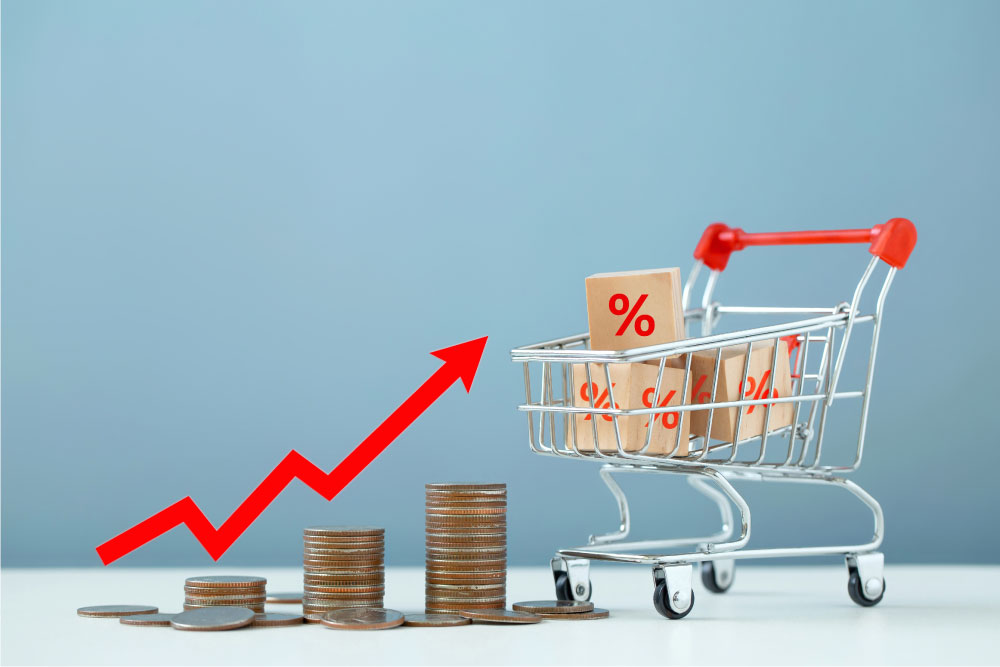Inflation is one of the most significant factors that affect personal finances in Ghana. It erodes the purchasing power of money, meaning the same amount of money buys fewer goods and services over time. For savers, inflation is particularly concerning because it can diminish the real value of your savings, leaving you with less financial security than you might have anticipated.
In this blog post, we’ll explore how inflation impacts your savings in Ghana and provide practical strategies to protect and grow your wealth in an inflationary environment.
Understanding Inflation
Inflation refers to the general increase in prices of goods and services over a specific period. In Ghana, inflation rates are influenced by factors such as:
- Changes in fuel prices.
- Fluctuations in the cedi against major currencies.
- Rising costs of imports.
- Government fiscal policies.
Inflation is typically measured by the Consumer Price Index (CPI), which tracks changes in the cost of a basket of goods and services over time.
How Inflation Affects Your Savings
- Erosion of Purchasing Power
If inflation is at 10%, and your savings earn 5% interest, the real value of your money decreases by 5%. For example, GHS 10,000 saved today may only have the purchasing power of GHS 9,000 next year. - Reduced Real Returns
Savings accounts in Ghana often offer interest rates below the inflation rate. This means your returns may not keep pace with rising prices, leading to a loss in the real value of your savings. - Higher Living Costs
As inflation increases the cost of living, you may find yourself dipping into savings to cover everyday expenses, leaving less money for future goals.
Practical Strategies to Protect Your Savings from Inflation
1. Diversify Your Investments
Savings alone may not outpace inflation. Diversify into investment options that offer higher returns, such as:
- Treasury Bills: These government-backed securities often offer rates that outpace inflation.
- Mutual Funds: Consider funds managed by reputable institutions like Databank, EDC, or Stanbic.
- Stocks: Invest in companies listed on the Ghana Stock Exchange. Stocks generally provide higher long-term returns.
2. Consider Inflation-Linked Investments
Inflation-linked bonds are designed to protect against inflation. While not yet common in Ghana, staying informed about such options is crucial as they may become available in the future.
3. Build a Multi-Currency Savings Portfolio
The Ghanaian cedi can be volatile, so diversifying your savings into stable foreign currencies like the US dollar can protect against local inflation. Use forex accounts offered by local banks for this purpose.
4. Leverage Real Estate
Investing in real estate can be a good hedge against inflation. Property values and rental income tend to rise with inflation, preserving or increasing your wealth.
5. Prioritize High-Yield Savings Accounts
Research banks and financial institutions offering competitive interest rates. While they may not fully outpace inflation, higher rates can reduce its impact.
6. Avoid Keeping Too Much Cash
Cash sitting idle loses value during inflation. Instead, allocate your money to assets that generate returns or appreciate in value.
7. Regularly Review and Adjust Your Financial Plan
Keep track of inflation trends and adjust your financial strategy accordingly. This includes revisiting your savings goals, investment portfolio, and spending habits.
Inflation-Proof Saving Tips for Ghanaians
- Set Specific Goals: Know why you’re saving—be it for education, a house, or retirement. This helps you choose the right saving and investment tools.
- Automate Your Savings: Consistently save a portion of your income through automatic transfers to savings or investment accounts.
- Educate Yourself: Learn about financial markets, inflation trends, and new investment opportunities.
- Seek Professional Advice: Consult a financial advisor for personalized strategies to grow your savings.
Conclusion
Inflation is an unavoidable reality in Ghana, but with the right strategies, you can mitigate its impact on your savings. Diversifying your investments, exploring high-yield options, and staying informed about economic trends are critical steps to ensure your money works for you, even in challenging times.
Remember, taking proactive measures today can secure your financial future tomorrow. How do you protect your savings from inflation? Share your tips and experiences in the comments!

